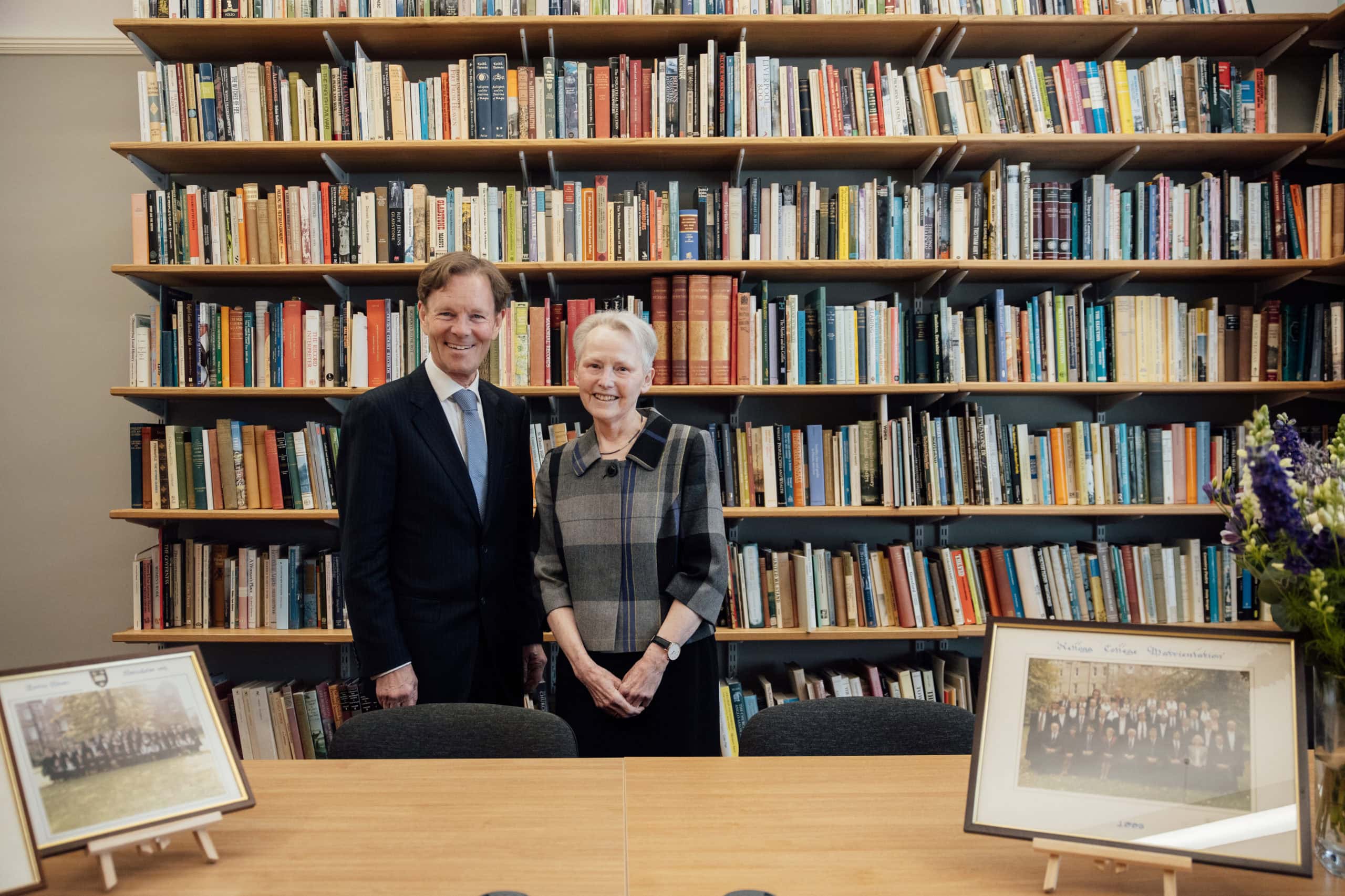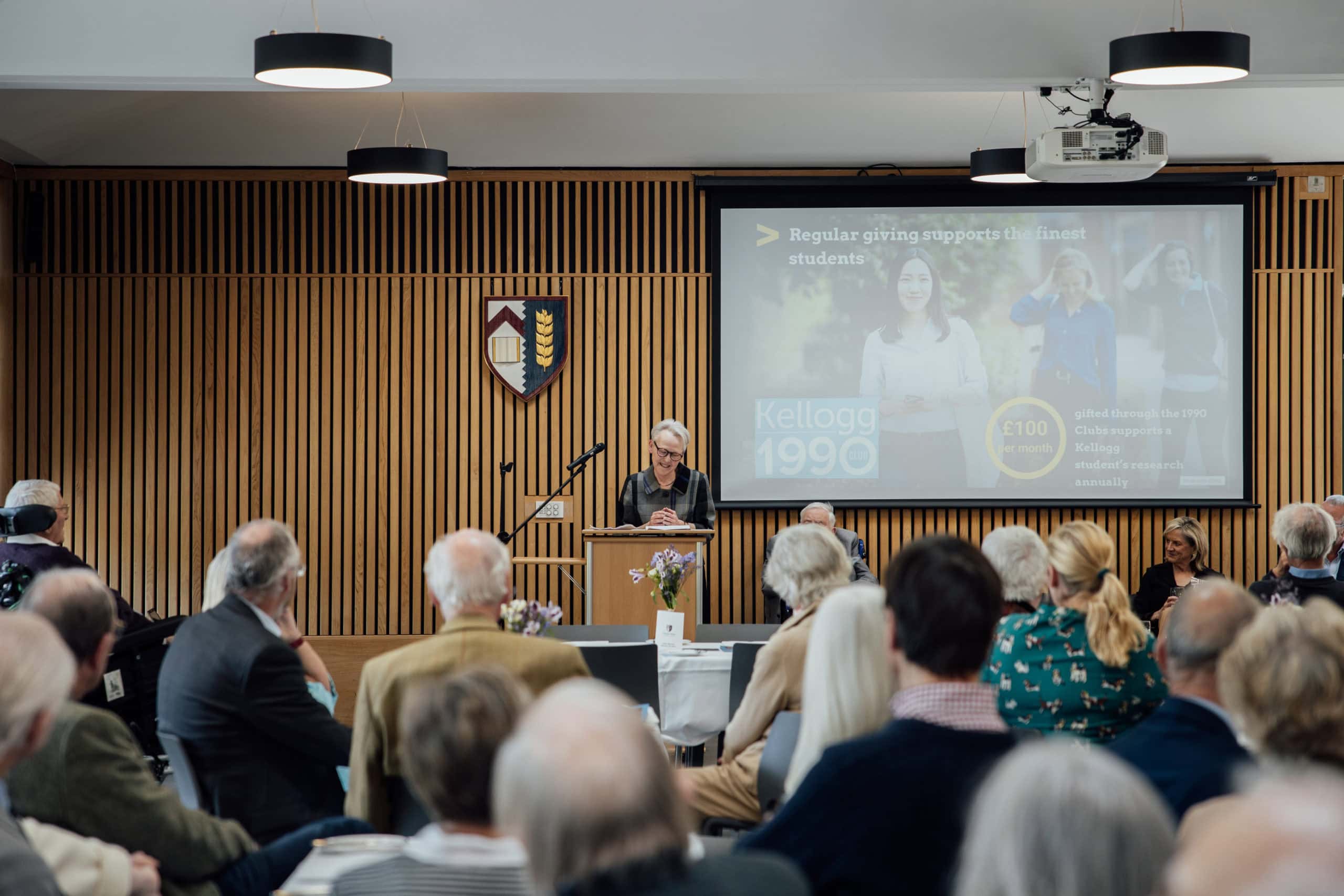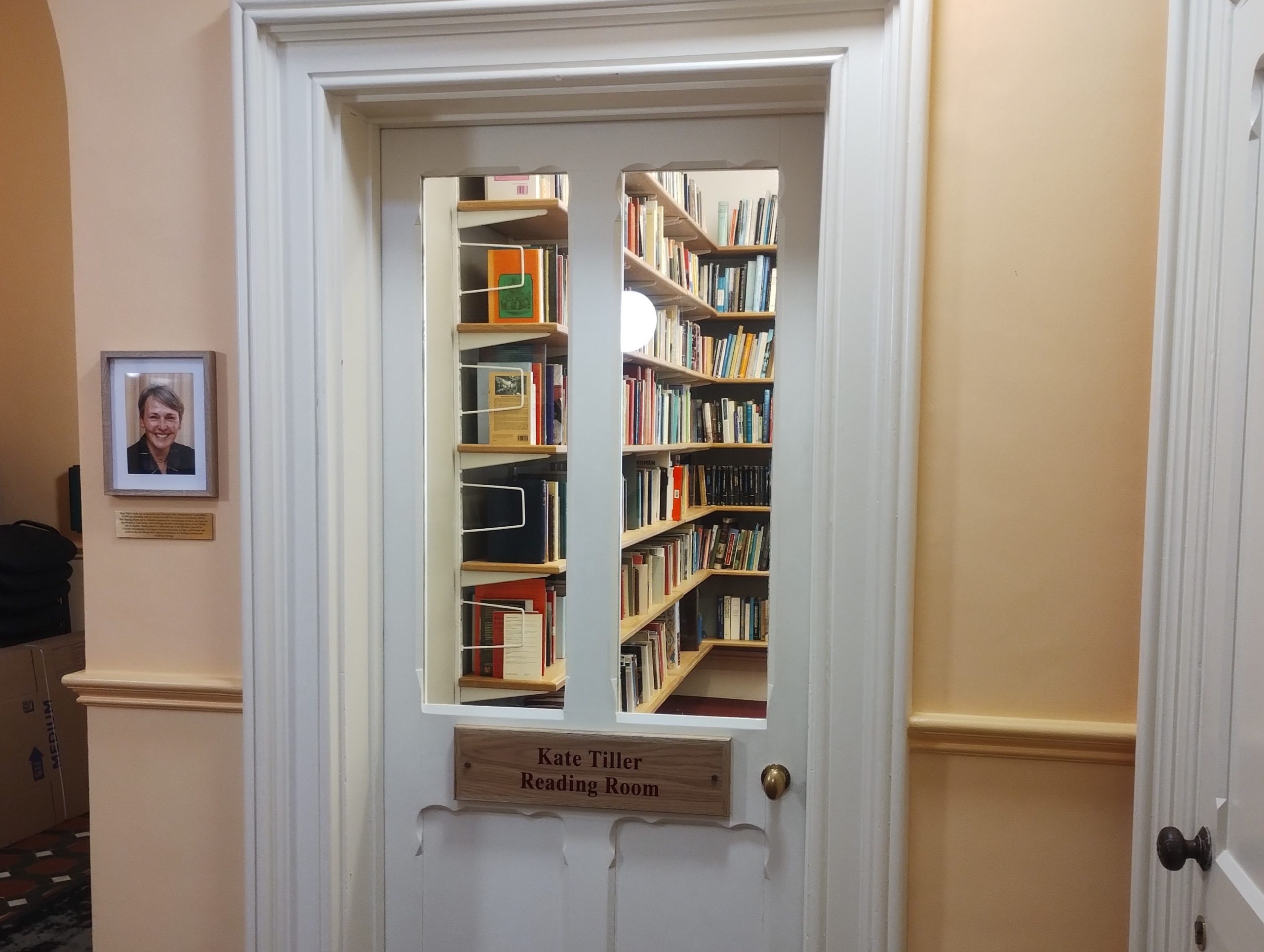Founding Fellow Kate Tiller OBE donates book collection to Kellogg
Visitors to the Kellogg Library may have noticed the addition of the new ‘Kate Tiller Reading Room.’
Named after Founding Fellow, Dr Kate Tiller, it is the new home of a very special collection. A successful academic in the field of local history, Kate has generously donated her substantial book collection to the College to ‘allow present and future students to immerse themselves in historical research.’

Dr Kate Tiller with Kellogg College President Professor Jonathan Michie in the new Kate Tiller Reading Room
Kate is a pioneer in several ways. As well as being a trailblazer of local history, a subject enjoying somewhat of a renaissance, she was a Founding Fellow of Kellogg in 1990, and helped introduce flexible learning at Oxford University.
She was Director of Studies in Local History at the Department for Continuing Education, and designed and implemented the first part-time degree course for graduates at the University, the Mst in English Local History, in 1993. Two years later Kellogg received its first part-time DPhil students when the University piloted a project for part-time research degrees. English Local History was one of the three subjects included.

Kate speaks about her collection at our recent Vincent Strudwick Society event
Kate worked to secure University library access, financial support, and IT facilities for part-time students. She also helped establish Kellogg’s first Graduate Studentship scheme. She equally played an active role in the pastoral care of our students, holding the positions of Senior Tutor, Dean of Degrees, and Vice-President during her time here.
She is a lifelong advocate for local history. Kate broke new ground within the subject, focussing on the themes of remembrance, community, and landscape. She describes local history as being ‘far from parochial’ and comments on how ‘it draws individuals with knowledge from various geographic areas and diverse backgrounds. The interplay between local and social history, landscape studies, environmental concerns, and even elements of religion, community, and politics, creates a rich tapestry of shared questions and comparative focus.’
She believes in the ‘browsability of historical collections’ and her special collection and the new reading room will not only provide a stimulating space for students to engage with the past, but also ensures the legacy of local history within the College.

The new Kate Tiller Reading Room in the Kellogg Library